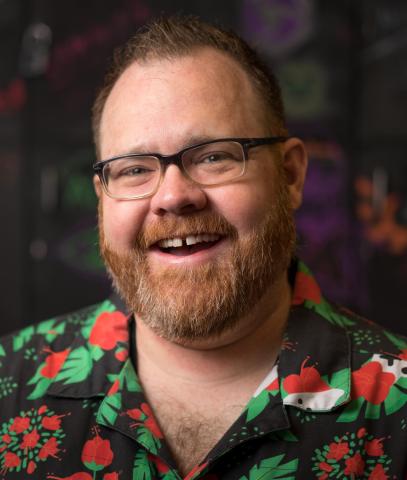event
GVU Center Brown Bag: Playing with Your Health: Onboarding, Designing and Developing Playful Medical Software with Patients, Clinicians, and Researchers
Primary tabs
Abstract:
Clinicians and researchers alike are being incentivized and resourced to develop new digital tools aimed at lowering the costs of, increasing access to, improving the safety of, and helping patients adhere to various healthcare programs. Various disruption and innovation programs and mechanisms have emerged to encourage the trend and tend to focus on providing resources in the form of rapid prototyping labs and training in various business methods and models, such as the Lean LaunchPad. The same resources and training are rarely available for software development. With little experience in design or development, many passionate and well intended health scientists find themselves creating derivative work, over-scoping projects, or not how to play the role of a client when hiring a developer. This can lead to problems with budgets, managing intellectual property, and design. In short, doctors, nurses and social scientists are being asked to, and are frequently eager to, become software developers, but without any training or knowing where to find the best practices to help guide them in development. While the promise of apps, games, and other software as a means to engage patients and help them adhere to prescribed treatments holds great appeal to a good many in health sciences, porting the type of prescriptive thinking that is commonplace in medicine does not align with the more open, playful ways that users engage with games, apps, and digital tools. Users do not always engage with software the same way they do prescribed medicine.
Looking at success and failures from the Therapeutic Games and Apps Lab at the University of Utah, this talk will tackle two key ideas: the utility of having game and development oriented faculty on a health sciences campus, and how design and playful vs. workful thinking can open doors to novel health software solutions. Both of these ideas not only have the potential to reduce the cost of software development, but to prevent clinicians and researchers from the frustrations experienced by first time software developers by teaching inductive design processes and development pipelines. This has been effective in shifting the style of research from one grounded in deductive practices to inductive ones that allow for greater participation from all parties involved (giving not only scientists, but patients and developers voice in the process). This talk will also, briefly, go over the Design Box, a participatory design method to help interdisciplinary teams increase buy-in, understand design spaces, and develop novel solutions.
Speaker Bio:
Roger Altizer is the Director of the Therapeutic Games and Apps Lab, the Director of Digital Medicine at the Center for Medical Innovation, the cofounder and Associate Director of the Entertainment Arts and Engineering Program and an Associate Professor in the Health Systems Innovation Research Division of the Population Health Sciences Department at the University of Utah. His research focuses on participatory design, playful approaches to health, game studies and serious games. He has worked on dozens of research projects ranging from VR tools to teach choreographic thinking to youth with autism spectrum disorder to adaptive video games designed to teach patients with spinal cord injuries to ski again. As a community engaged scholar, his work appears in publications ranging from Science Translational Medicine to PlayStation Magazine and he has presented on his work conferences ranging from ChiPlay to the Sundance Film Festival and the Game Developers Conference. A former games journalists, Roger now runs a game development lab on the Utah Health campus where he funds 25 graduate students to work with clinicians and health science researchers on medical games and apps.
Status
- Workflow status: Published
- Created by: Dorie Taylor
- Created: 08/23/2018
- Modified By: Dorie Taylor
- Modified: 08/28/2018
Categories
Keywords
Target Audience

